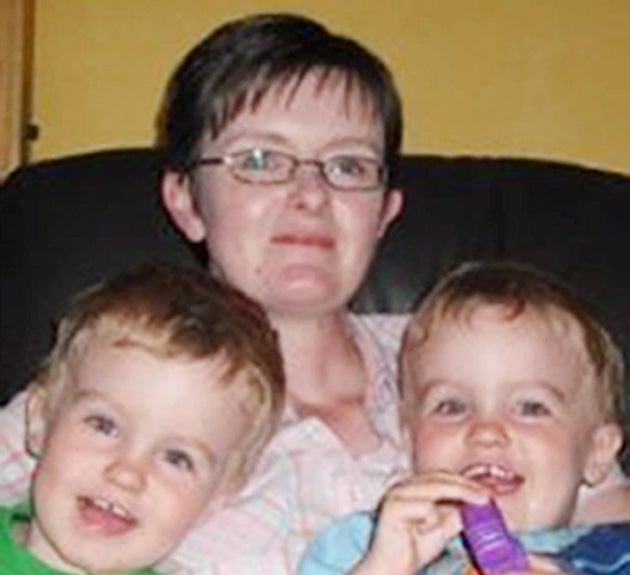Mother of twins with E. coli attacks petting farm
Boys in hospital with kidney failure among victims of outbreak

Your support helps us to tell the story
From reproductive rights to climate change to Big Tech, The Independent is on the ground when the story is developing. Whether it's investigating the financials of Elon Musk's pro-Trump PAC or producing our latest documentary, 'The A Word', which shines a light on the American women fighting for reproductive rights, we know how important it is to parse out the facts from the messaging.
At such a critical moment in US history, we need reporters on the ground. Your donation allows us to keep sending journalists to speak to both sides of the story.
The Independent is trusted by Americans across the entire political spectrum. And unlike many other quality news outlets, we choose not to lock Americans out of our reporting and analysis with paywalls. We believe quality journalism should be available to everyone, paid for by those who can afford it.
Your support makes all the difference.The mother of twin boys admitted to hospital with kidney failure after visiting a petting farm in Surrey affected by an outbreak of E. coli spoke of her anger yesterday at the failure to close the farm sooner.
Tracy Mock's two-year-old sons are among dozens of people infected with the bug, who are thought to have contracted it through contact with animals at Godstone Farm in Surrey.
The twins – Aaron and Todd Furnell – are being treated at St Thomas's hospital, in central London, along with two other children. They are on kidney dialysis but are in a stable condition.
Speaking from her home in Kent, Ms Mock, 39, said one of the twins had had a blood transfusion and doctors had told her it could be "weeks" before they were well enough to come home.
"I'm just so angry that they allowed the place to stay open. I heard on the news that cases were reported there on 27 and 28 August, yet we went there on 31 August. Why wasn't it shut down before then? If it had been, my two boys wouldn't be in hospital on dialysis. If the public health authority didn't think it should've been closed, then Godstone Farm should've done it themselves."
Thirty-six cases of the E. coli O157 infection have been linked with the farm, of which 12 have been in children, all under 10. The O157 strain, although rare, is one of the nastiest, particularly in young children, causing diarrhoea, vomiting, and, in extreme cases, kidney failure and death. The outbreak is believed to have started on 8 August. About 2,000 people visit the farm each day, so tens of thousands may have been put at risk.
Contact with high-risk animals – lambs, calves and goats – was not stopped until 3 September and health officers did not advise shutting the farm until 11 September. It was finally closed on 12 September.
Dr Graham Bickler of the Health Protection Agency defended its decision to allow the farm to remain open, saying experts had acted on the basis of the available information. Halting contact with cows, sheep and goats, which are the main carriers of the infection, had proved effective at controlling outbreaks in the past, and closing farms at the first sign of infection would have been deemed an over-reaction.
"We have had cases associated with farms in the past but this is one of the largest. Something has happened here which has led to a large exposure and our investigation over the next few weeks will try to understand exactly what."
Professor Hugh Pennington, an expert on E. coli, said yesterday children under five should be kept away from calves, lambs and goats because young children's organs are more susceptible to the toxin produced by E. coli O157.
"The risk is very low – millions visit these farms every year, but the consequences of taking the risk can be catastrophic. The safest way for these farms to proceed and maintain their business would be for them to get rid of the ruminants," he said.
The Liberal Democrat health spokesman Norman Lamb said he would be writing to the HPA's chief executive, Justin McCracken, to demand an urgent review of the case.
"Given the viciousness of E. coli, it seems extraordinary that the HPA did not act more quickly," he said.
What is E. coli?
*The E. Coli bacterium exists naturally in the gut but certain variants can cause illness. The current outbreak is caused by E. Coli O157, which produces a potent toxin causing diarrhoea and, in extreme cases, internal bleeding and kidney failure. It is spread through contact with farm animals and also by eating contaminated meat. It can be prevented by good hygiene and hand-washing so that bacteria are not transmitted to the mouth. It is possible that people could pick up the organism by touching farmyard equipment.
The organism can survive for 10 months, so there is a risk of infection long after an environment is contaminated.
Join our commenting forum
Join thought-provoking conversations, follow other Independent readers and see their replies
Comments